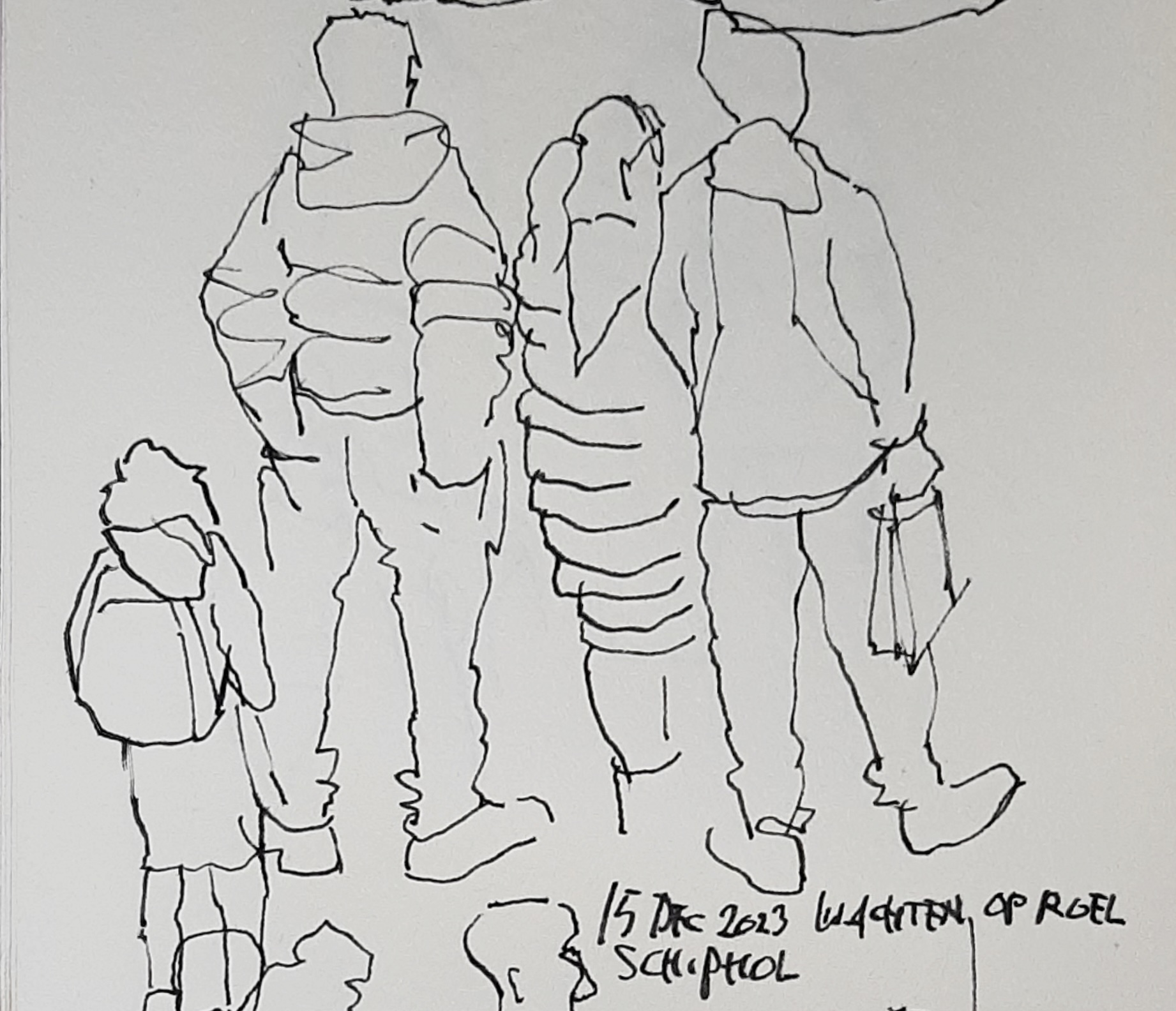When my plane arrived at Amsterdam airport, the gate was occupied and our plane had to wait at the apron for the gate to open up. Once we deplaned and cleared immigration, we waited a long time for our luggage. My brother Janwillem picked me up, and I felt bad for him because I knew he was waiting at the other side of the frosted glass in the arrival hall. When I finally got my luggage, I met my brother. We hugged and I apologized for keeping him waiting. He was completely unfazed and said: “it does not matter because I have developed the art of waiting.” I asked him what this meant, and he explained that he had brought a sketchbook and spent his time sketching people. Janwillem is a talented artist and he used the “downtime” of waiting for me to pursue his passion for drawing.

What is the problem with waiting? Sometimes an unexpected wait causes problems, we might be late for an appointment, or we could miss a train or flight. In that case there is a complication to be solved, but on top of that there is a sense of frustration, perhaps even anger. In other situations, the waiting does not cause a problem—when my brother picked me up we both had plenty of time—but we might still feel frustrated.
What causes the irritation of waiting? In many situations we get preoccupied with the wait that we endure. When in line for the checkout at the grocery store, we might anxiously look at the person who is checking out to see how fast (or slow) the checkout process is going. Or while waiting for luggage at the airport we might watch the empty luggage carrousel and be surprised that after all this time it is still empty. The problem really is the mismatch between our expectations and the situation that we are in. We are out of control, which is a feeling we may resent. Furthermore, what we focus on tends to grow, and before we know it our mind is taken over completely by the frustration of waiting.
Now enter my brother Janwillem who developed the art of waiting by using the time waiting to do what he loves: sketching and drawing. He used a shift in perspective to turn the frustration of waiting into an unexpected gift of time. What if at a random moment you received the gift of time and you did not have to do anything? Would you enjoy that? What would you do? Would you fret that you suddenly received 30 minutes of unscheduled time? Or would you submerge yourself in an activity that you enjoy or that is meaningful? Here are some activities you can do in many places: read a book that grabs your attention, talk to others–and refrain from griping about the wait, draw or sketch, do some good stretches, sing songs that you love, deeply listen to music or a podcast, or sit in the silence and meditate. The point is not to kill time—what a silly phrase that is, the aim is to be focused rather than be in a confused state of resentment. How can you develop the art of waiting?
